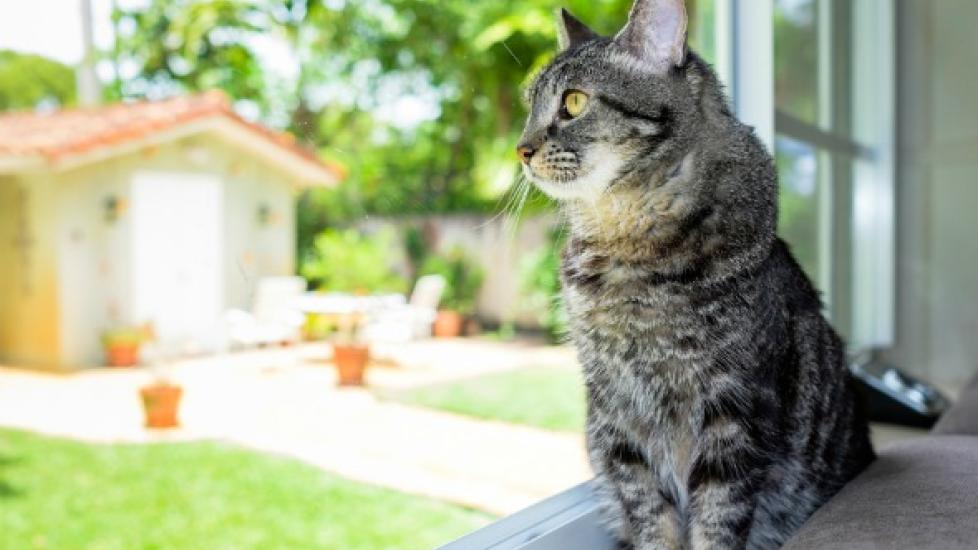Treating Your Cat's Kidney Disease at Home
Chronic kidney disease is a common malady, particularly for senior and geriatric cats. Because our pets are now living longer than ever before, this disease is becoming one that more and more cat owners find themselves having to manage for their pets.
Last week, we talked about the mechanics of kidney failure. Today, let's talk about living with a cat that has kidney disease.
Know the Symptoms of Kidney Disease in Cats
Cats in the early stages of kidney disease are often thirsty. Consequently, they also urinate more frequently than normal, usually producing a larger than normal volume of urine. These are the first symptoms to occur but they may be difficult to spot for many cat owners.
As the disease progresses, your cat may start to vomit. Some cats have diarrhea. Your cat's appetite may become depressed and you may even notice weight loss. As kidney function continues to decline and your cat begins to feel worse, you may notice a decrease in water consumption rather than seeing an increase.
Fighting Dehydration in Your Cat
One of the most common and serious problems for cats with kidney disease is dehydration. It is important to keep your cat hydrated. Unfortunately, many cats fail to drink adequate amounts of water even when healthy. When an illness such as kidney disease rears its head, the problem becomes even more serious.
Encourage your cat to drink water by providing fountains or allowing a faucet to drip. Canned food has a higher moisture content than dry and is often recommended for this reason. Adding water to the food is also an option that will increase your cat's fluid intake. Needless to say, it's important for your cat to have access to clean, fresh water at all times.
Despite your best attempts to increase your cat's moisture consumption, it's possible that dehydration may still occur. In that case, your cat may need to have additional fluids administered. Some cats need to be given fluids on a regular basis. Though fluids can be given intravenously and this may be the best method of delivery for severely ill cats, often a subcutaneous route of delivery is used. This involves using a needle to administer the fluids under your cat's skin. This may be done at your veterinarian's office. In many cases, cat owners can learn to perform this procedure at home for their cats. Talk to your veterinarian about the procedure. She can advise you which type of fluid is appropriate for your cat as well as providing guidance on how much to give and how to administer the fluids if your cat is a candidate for home treatment.
Using Diet to Prevent Kidney Failure in Cats
You'll need guidance from your veterinarian about what type of food is appropriate for your cat. The proper diet will vary, depending on your cat's individual condition.
In the past, diets low in protein were often recommended for cats with kidney failure. This is no longer necessarily the case but it is important that the protein in your cat's diet be easily digestible. For cats that have electrolyte deficiencies/excesses as a result of their kidney disease, a special diet may be recommended to help control these abnormalities. For instance, diets restricted in phosphorus may be required for cats with elevated blood phosphorus levels. Blood potassium levels may be either increased or decreased and the diet will need to be formulated accordingly.
As noted previously, canned diets are often recommended because of their increased moisture content as well. Whatever your cat's diet, it's essential to make sure your cat is eating and not losing weight. If your cat stops eating or the appetite becomes depressed, contact your veterinarian.
Medication for Cats With KIdney Disease
Cats with kidney disease may also need to receive various medications. Again, you'll need your veterinarian's guidance in deciding which medications are necessary and/or appropriate for your cat. ACE-inhibitors such as enalapril or benazepril are often recommended. High blood pressure is a common consequence of kidney disease and may need to be treated as well. Medications such as amlodipine are sometimes recommended to treat hypertension (high blood pressure). However, each cat is different and your cat's treatment protocol will need to be tailored to fit your cat's individual needs. Consult with your veterinarian and administer any medications as directed. Do not increase, decrease, or discontinue medications without speaking with your veterinarian first.

Dr. Lorie Huston
